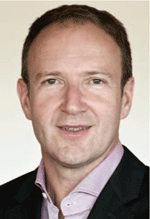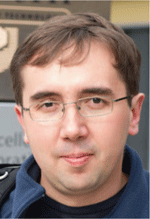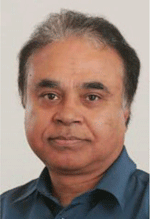Enabling a CCS industry through research at the CO2CRC National Otway Research Facility
Matthias Raab A D , Charles Jenkins B , Roman Pevzner C and Abdul Qader AA CO2CRC Ltd, 11–15 Argyle Place South, Carlton, Vic. 3053, Australia.
B CSIRO Black Mountain, Clunies Ross St, Canberra, ACT 2601, Australia.
C Curtin University, Kent Street Bentley, WA 6102, Australia.
D Corresponding author. Email: matthias.raab@co2crc.com.au
The APPEA Journal 59(2) 936-939 https://doi.org/10.1071/AJ18180
Accepted: 15 March 2019 Published: 17 June 2019
Abstract
The CO2CRC Otway Research Facility is Australia’s first demonstration of carbon capture and storage. The Otway Research Facility was established in 2007 to demonstrate scientific, technical, legal, regulatory and social aspects of successfully operating a carbon capture and storage (CCS) project. The facility is also globally unique as it has its own CO2 production well (Buttress-1) on site. For more than a decade, experiments with strong national and international collaboration at the Otway Research Facility continue to provide strong value to an emerging global CCS industry, not only due to the activities taking place, but also because of the specific scientific, social, political and regulatory environments at the time of execution. The Otway facility has one of world’s most comprehensive characterisation, injection, monitoring and verification programs, and its successful project outcomes have not only met and helped further guide CCS legislation within Australia, but also assisted underpinning the regulatory and business case for large commercial CCS projects in Australia and overseas. In addition, the Otway Capture Facility is a hub for CO2 capture research for high pressure and high CO2 content natural gases. Tests are being conducted using adsorption and three different types of membrane-based gas separation technologies. These technologies have the potential to become available for natural gas processing on production platforms and floating production storage and offloading vessels.
Keywords: capture skid, CO2CRC Otway Project, geological carbon storage, membrane- and adsorption-based gas separation.

Dr Matthias Raab is an experienced manager with international credentials in successful, high profile and complex projects in industry and academia. He has 23 years of experience in commercial and R&D environments with major sector clients. At CO2CRC Ltd, Dr Raab manages large project portfolios with teams of up to 70 people and annual budgets of up to $20M. As COO Dr Raab has strategic and operational responsibility for CO2CRC’s research facilities, research programs and the delivery of major research and infrastructure projects. Dr Raab manages a group of Senior Program, Project and Operations Managers and provides leadership to CO2CRC’s strategic planning and implements new strategic initiatives. Dr Raab’s overall portfolio includes the $45M research program in Carbon Capture and Geological Carbon Storage, the CO2CRC Otway Field Facility, the Stage 3 Expansion of the Otway Project and the $51.6M infrastructure grant awarded to CO2CRC under the Education Investment Fund. In previous roles Dr Raab managed Australia’s largest 2D marine seismic survey in Bass Strait, led the Victorian CCS initiative exploring for industrial scale CO2 storage in the Gippsland Basin and was a Project Manager building and documenting the border between the Kingdom of Saudi Arabia and the Republic of Yemen. |

Charles Jenkins is an applied physicist with a PhD from the University of Cambridge and now works with CSIRO Australia in the umbrella research consortium CO2CRC. He has previously worked in a variety of instrument design roles, including seven years with Schlumberger. Since 2008 he has been involved in the design and operation of the demonstration CO2 storage project ‘the Otway Project’, where his principal responsibilities have been in managing the monitoring and verification programme, with associated experience in project design, risk assessment, regulatory compliance and public relations. The Otway Project has now stored 65000 tonnes of CO2 and the lessons learned from this project were summarized in a major paper published in 2012 in the Proceedings of the National Academy of Sciences of the USA. Charles is a Fellow of the UK Institute of Physics and an Associate Editor of the International Journal of Greenhouse Gas Control. |

Dr Roman Pevzner has a PhD in Geophysics (2004) from LMSU (Russia). He headed the software development department in geophysical service company from 2002–2008. Also research and teaching at Geological Faculty of LMSU, Seismometry and Geo-acoustics Department. Dr Pevzner was appointed as A/Professor in Discipline of Exploration Geophysics in 2008 progressing to Professor in 2018. His main areas of interest are signal processing, borehole seismic methods and time-lapse seismic surveys and he has coauthored 48 journal papers and more than 135 refereed conference publications. |

Dr Abdul Qader is the Capture Program Manager with CO2CRC in Australia. Since 2007 he has been managing the implementation of CO2CRC carbon capture demonstration plants from A to Z, i.e. starting from conception within research laboratories, through to design for industrial settings, funding applications from external sources, construction, commissioning, operation to achieve respective research objectives and producing reports. So far, he has successfully completed projects involving nine pilot plants, most in Victoria’s power plants, two in Vales Point Power plant in NSW and one in gas separation in CO2CRC’s Otway Facility, Victoria. He has also been closely associated with the management of capture research conducted in six universities of Australia under the banner of the CO2CRC during 2007–2010. Besides various project technical and project management inputs, cost reduction of capture technologies for viable CCS with a view to reducing carbon emission is the focus of his engagement. Over and above this experience, he has over 35 years of experience in chemical engineering in various roles of research, design, teaching, consulting and managing projects. |


